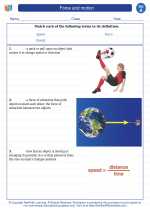Soil
Soil is a mixture of organic matter, minerals, gases, liquids, and organisms that together support life on Earth. It is a crucial component of the Earth's ecosystem and provides the foundation for plant growth and food production.
Composition of Soil
Soil is composed of three main components:
- Mineral particles: These are the inorganic materials such as sand, silt, and clay that make up the solid portion of the soil.
- Organic matter: This includes decaying plant and animal matter, as well as living organisms like earthworms, insects, and microorganisms.
- Water and air: Soil contains varying amounts of water and air, which are essential for the growth of plants and the survival of soil organisms.
Functions of Soil
Soil serves several important functions:
- Supporting plant growth: Soil provides physical support, nutrients, and water for plants to grow and thrive.
- Filtering and purifying water: Soil acts as a natural filter, removing contaminants and impurities as water percolates through it.
- Habitat for organisms: Soil is home to a wide variety of organisms, from bacteria and fungi to insects and small mammals.
- Recycling nutrients: Decomposing organic matter in the soil releases nutrients that can be used by plants, completing the nutrient cycle.
- Engineering medium: Soil is used as a construction material and provides the foundation for buildings and infrastructure.
Importance of Soil Conservation
Soil is a finite and non-renewable resource that is vulnerable to degradation from human activities, such as deforestation, overgrazing, and improper land use. Soil conservation practices, such as crop rotation, contour plowing, and reforestation, are essential for preserving the quality and fertility of soil for future generations.
Study Guide for Soil
When studying soil, it is important to understand the following concepts:
- The components of soil and their roles in supporting life.
- The importance of soil conservation and sustainable land management practices.
- The relationship between soil, water, and plant growth.
- The impact of human activities on soil quality and ways to mitigate those impacts.
By understanding the composition, functions, and importance of soil, we can appreciate its role in sustaining life on Earth and work towards its conservation and responsible use.
.◂Science Worksheets and Study Guides First Grade. Force and motion
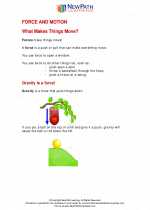
 Worksheet/Answer key
Worksheet/Answer key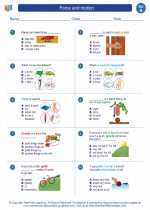
 Worksheet/Answer key
Worksheet/Answer key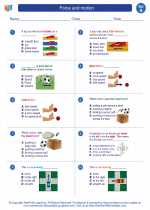
 Worksheet/Answer key
Worksheet/Answer key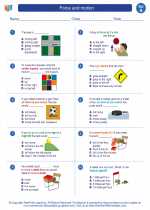
 Vocabulary/Answer key
Vocabulary/Answer key